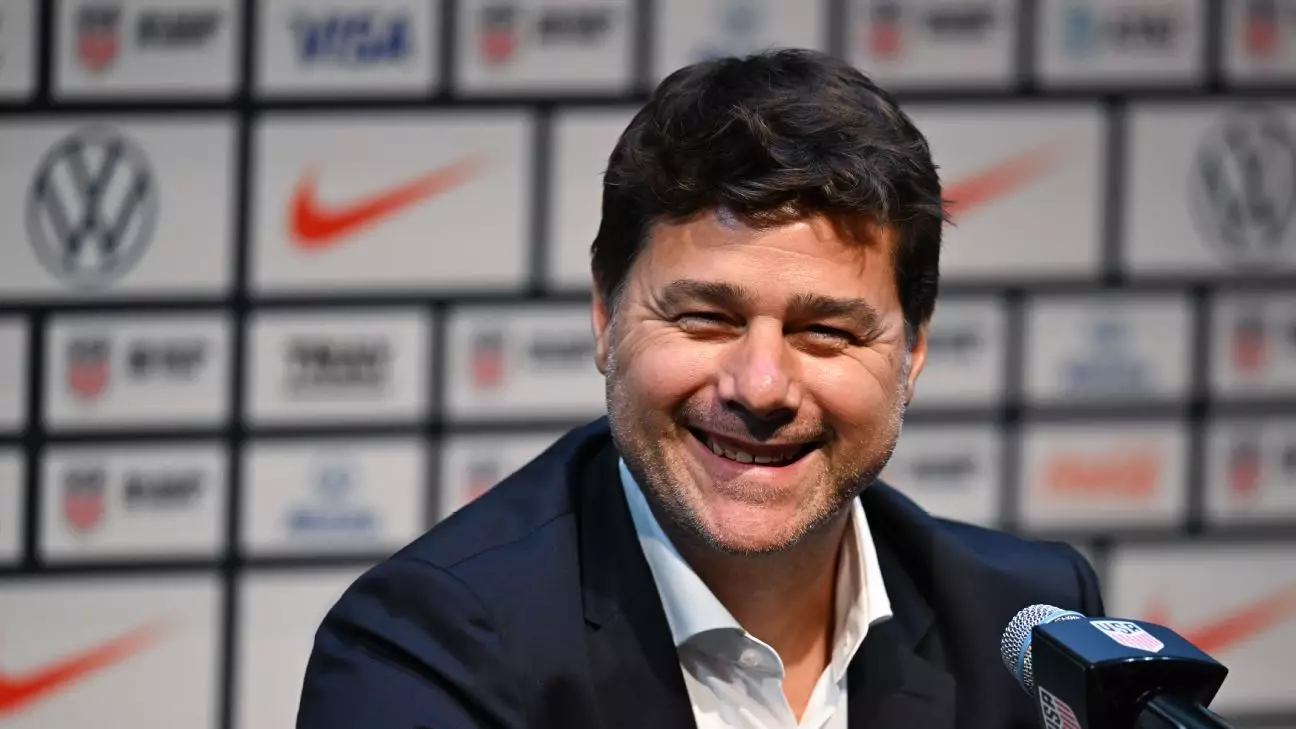The introduction of Mauricio Pochettino as the head coach of the United States Men’s National Team (USMNT) marks a pivotal moment in the evolution of American soccer. Defender Chris Richards, who currently plays for Crystal Palace in the English Premier League, articulated this sentiment eloquently before a crucial match against Liverpool. He highlighted the significance of Pochettino’s hiring as a bold statement of ambition; a clear indication that U.S. Soccer is serious about elevating the standards and competitiveness of the sport.
Richards’ comments underscore a broader ambition within U.S. Soccer to compete at the highest levels internationally. The decision to pursue a coach of Pochettino’s caliber, rather than settling for a more conventional choice, demonstrates a commitment to transcend existing limitations and assert a newfound ambition. The Argentinean’s storied coaching history in club football, including significant success in the Premier League and Champions League, serves as a beacon of hope for players and fans alike. Richards expressed excitement about the potential transformations under Pochettino’s leadership, believing that such a high-profile appointment can inspire the team to excel not only in friendlies but also in crucial tournaments.
Richards articulated a forward-thinking mindset when discussing the upcoming 2026 FIFA World Cup, which will be co-hosted by the United States, Canada, and Mexico. Rather than merely dreaming about success, he conveyed a mentality of tangible achievement, stating unequivocally, “I want to win it.” This perspective reflects a newfound confidence in U.S. soccer that aligns with the aspirations of its rising stars.
However, Richards also pointed out critical obstacles that need addressing for the sport to thrive and engage a broader demographic. He identified the persistent issue of the “pay-to-play” model as a significant barrier to entry for many aspiring athletes. While soccer is indeed the fastest-growing sport in the United States, accessible options for participation remain scarce for those from less privileged backgrounds.
He emphasized that the current system’s economic constraints often prevent talented players from pursuing the sport seriously. The travel costs associated with competitions add to these barriers, given the vast geographical expanse of the country. Richards’ vision for a more inclusive sporting culture hinges on reforming the existing financial structure to create opportunities for young players, particularly those from underserved communities. In anticipation of the 2026 World Cup, he hopes for a foundational change in how youth soccer is organized, allowing for greater access and participation.
Alongside Richards’ insights about growth in the sport, another narrative is developing regarding the readiness of key players like Tyler Adams. The Bournemouth midfielder, who recently underwent back surgery, is set to make his season debut soon. His recovery has been a slow process, reflecting the physical toll competitive soccer can take on even the most dedicated athletes. Adams, who has faced a series of injuries over the past season, demonstrates resilience and commitment as he looks to re-establish himself in the squad.
Bournemouth manager Andoni Iraola highlighted Adams’ near readiness to participate fully in team training, signaling a welcome return for both club and country. The absence of Adams from Pochettino’s initial squad served as a reminder of the challenges players face on their journey to fitness and performance, underscoring the delicate balance athletes must maintain between health and competitive ambition.
As the USMNT prepares for their upcoming friendlies, including a match against Panama, the stakes have never been higher. Pochettino’s strategies and player selection will undoubtedly influence the squad’s trajectory as they aim for greater prominence on the international stage. For players like Richards and Adams, these developments go beyond mere match outcomes; they represent the shifting landscape of soccer in the United States and the collective vision of a sport yearning for recognition and success.
The hiring of Pochettino and discussions surrounding it encapsulate the essence of ambition within U.S. Soccer. While challenges persist, the vision shared by players and officials offers a promising future. If U.S. Soccer can implement essential reforms while leveraging the expertise of high-caliber coaches, the sport may very well witness unprecedented growth and accomplishment in the years leading up to the 2026 World Cup. As the landscape continues to evolve, the excitement of players, fans, and stakeholders alike hangs in the balance, poised to transform American soccer into a force to be reckoned with on the world stage.

Leave a Reply